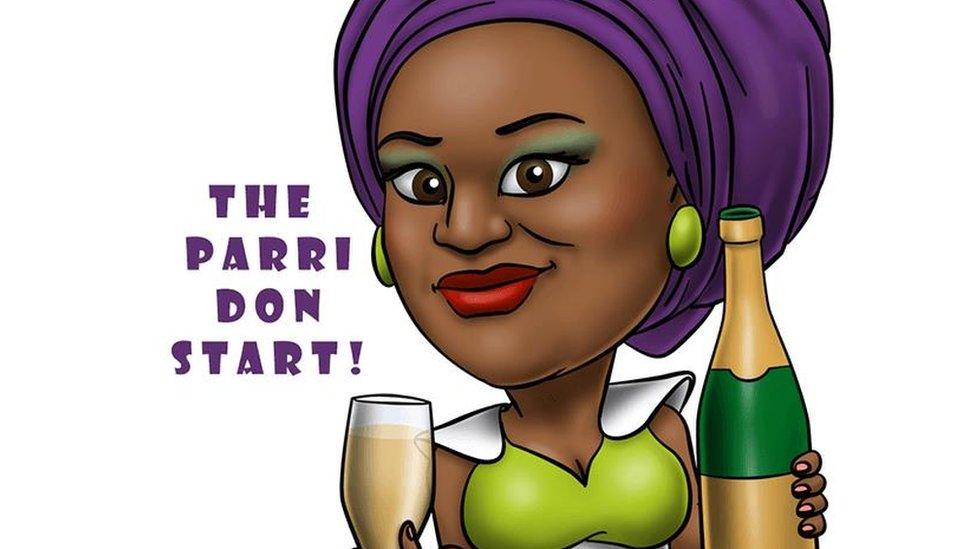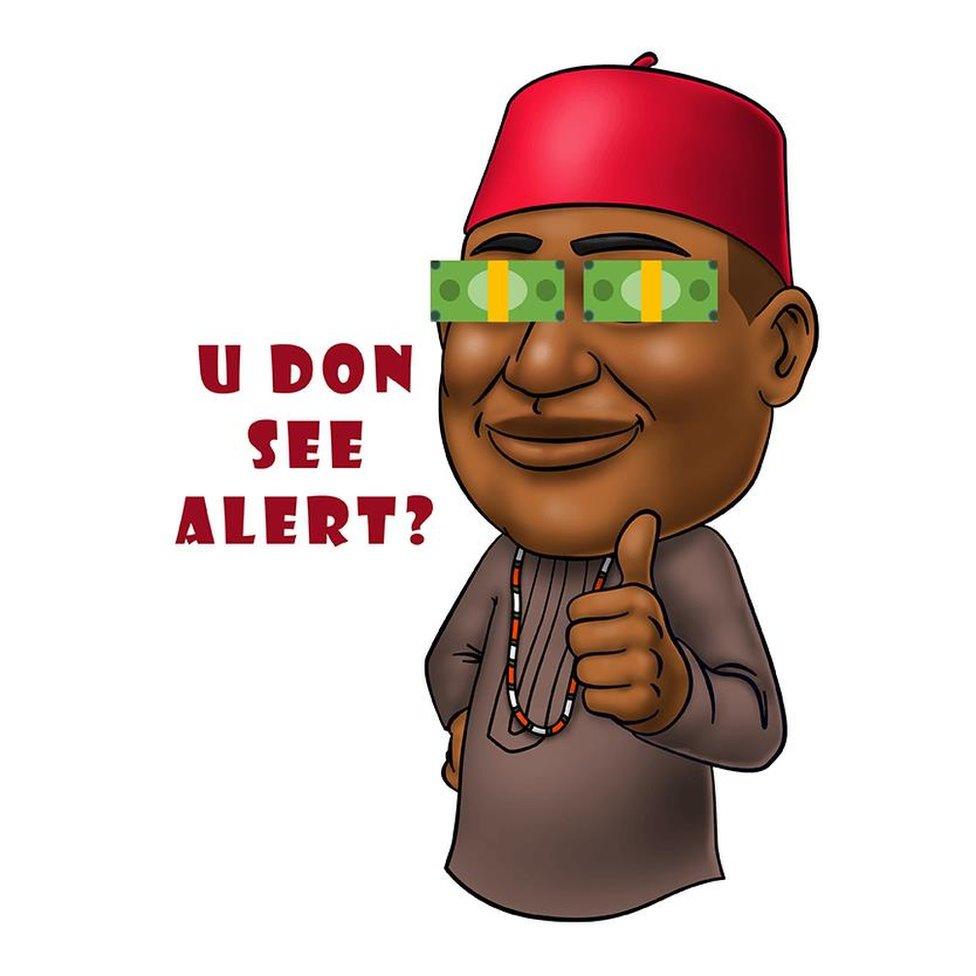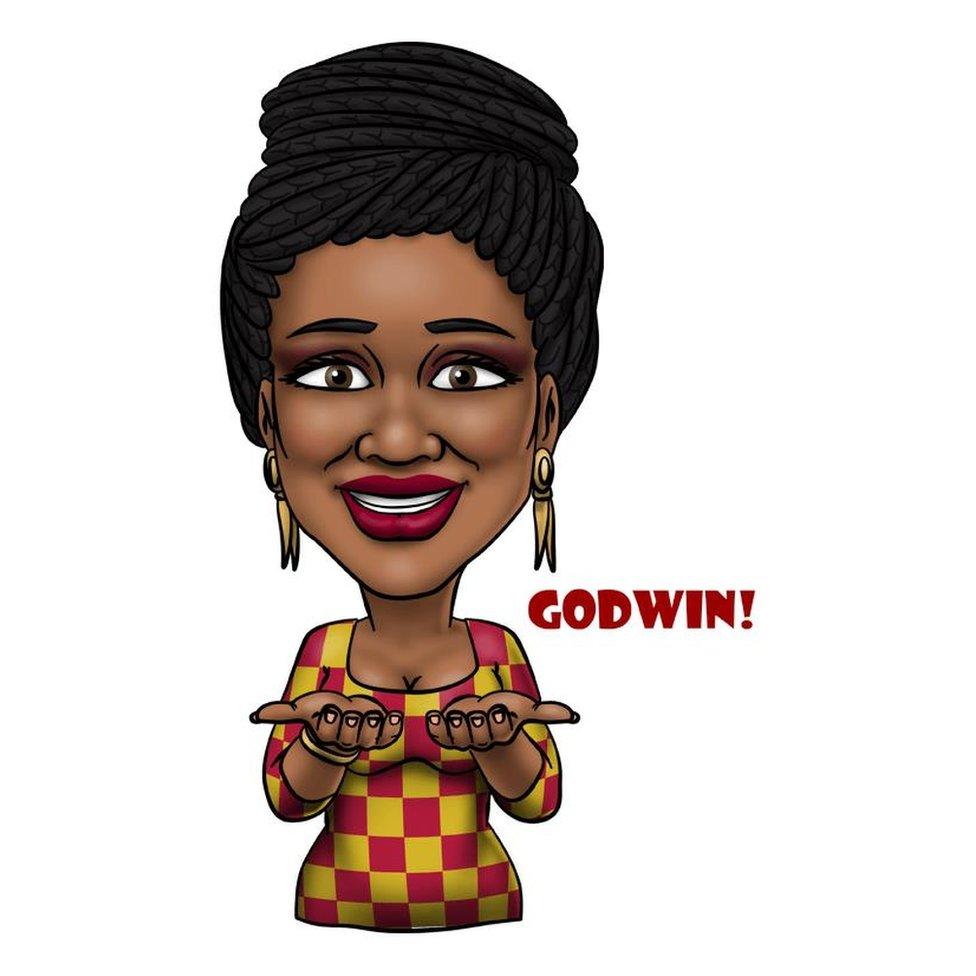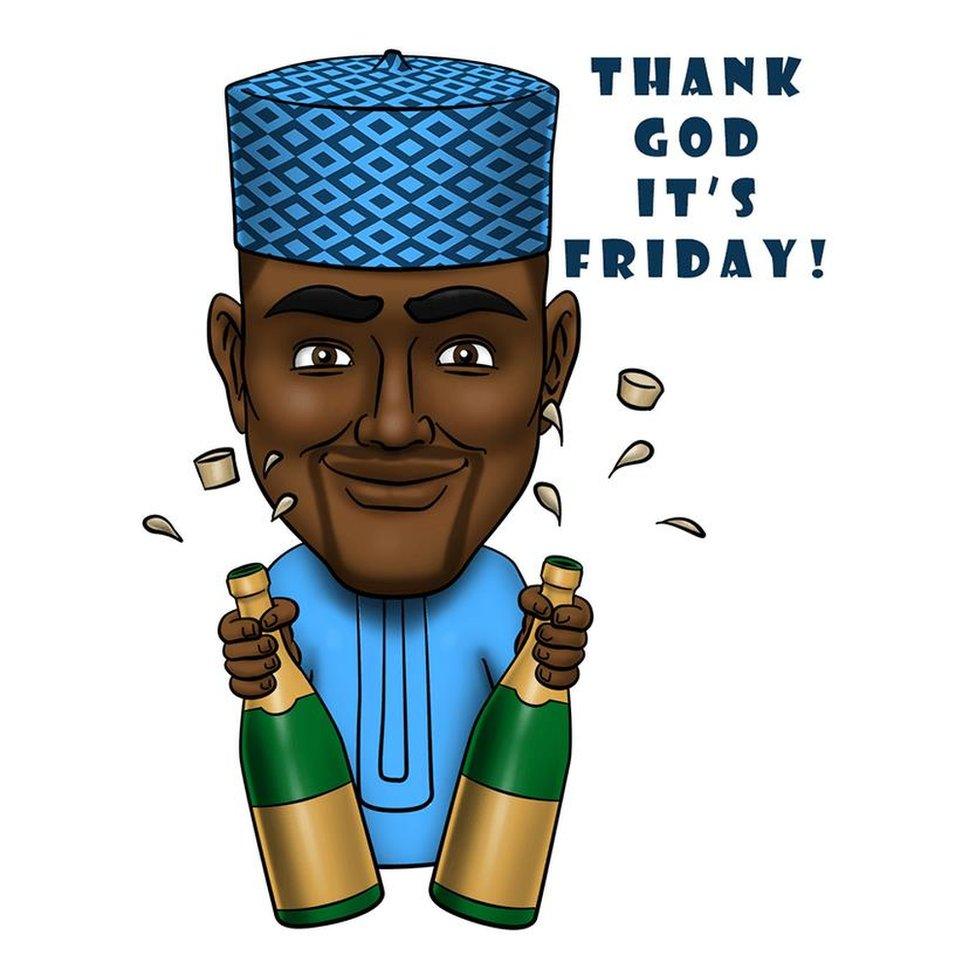E Make Brain! Emojis for Africa
- Published

Emoticons have become a staple for African mobile phone users, just as they have in the rest of the world. But anybody who has tried to say "please, don't make me laugh" with an an emoji will know a bright yellow smiley is not always up to the job. A new range of emoticons aimed squarely at Africans aims to solve that problem.
"We tried to create an African app, that actually has really strong images - this is Disney quality animation here," Nigerian-American developer Ayoola Daramola told the BBC.
His newly launched line of emojis - which sit in his app, Afroemojis - features men and women dressed in colourful African clothes, and local expressions in pidgin English, such as "Chai!" ("Wow!"), "Correct!" ("Great job!") and "No dulling!" ("Don't be slow!").

According to the US-based Pew Research Center, text messaging remains the most common activity for mobile phone users in Africa, external, and Mr Daramola says his Afrocentric emojis will fill a gap in the market by allowing users to express themselves using characters they can identify with, and everyday local phrases that mean more to them.

Guide to West African pidgin
•E make brain - It makes sense
•Abeg no vex - Please don't be annoyed
•Drop something - Tip some cash
•How market? - How is business?
•Oya shake body - Dance
•U Don See Alert? - Have you seen the bank alert?
•The parri don start? - Has the party started yet?
•Wasere - You did great
•Yawa don gas - We have a problem
•U dey crase? - Are you crazy?

Impressed by the high adoption rate that mobile phones have enjoyed across the African continent, he wanted to create an app that responded to the rapidly changing way Africans are communicating with each other, both at home and abroad.
"This is basically 'send me an African-looking image', right? But I think the evolution of apps and cellphones is going to get a lot more localised.
"You're going to have African apps that are really localised, African-based, really really local to you - chatting applications, video-chat applications, even mobile money-sending apps," Mr Daramola says.

The mobile phones that Africans use have typically been designed and built in California or South Korea, and often the apps that run on them don't engage directly with African users - leaving a gap that Mr Daramola is trying to exploit with Afroemojis.
And although his company is based in the US, he says Afroemojis is an African enterprise.

Ayoola Daramola spoke to Newsday on the BBC World Service - listen to his interview here

"It's a business and at the end of the day you do have to make a return on your investment," he says.
"But you know, you hear this about Africa, you hear the other about Africa - but actually capturing things like this and making it look this good, it's just a step in the right direction for Africa as a whole.
"It's a good technological step to show that we're not just dependent on everything else created outside of Africa. But we can actually do it from inside."

As important as the images, is the African-English slang Mr Daramola's emoticons use.
His hope is that Africans will prefer to use a character that says "Any better?", rather than one that asks "Anything good for me?".
And while the 50 characters currently available are predominantly West African, he wants to expand the range of emojis to reflect different African cultures.
Mr Daramola's hope is that millions of people will use and share his emoticons. But that may take a while.
So far, he says, the app has had about 5,000 downloads on android, and on iOS, which is far less widespread in Africa, about 2,000.
"We just launched," he says, "so it's to just watch it actually grow over time."